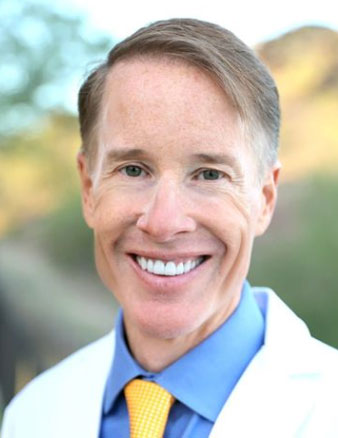Interested in figuring out how well your thyroid is working? The American Thyroid Association recently surveyed over 12 thousand people on treatment for hypothyroidism and asked them how well their treatment was working.
The upsetting results were that most were not doing well. However, there were several fascinating insights about which types of treatments seemed to work the best for people. If you would like to learn more, join me today in finding out.
Understanding the Thyroid Study
The study was published in a journal in 2018. The survey was administered online to those who visited the American Thyroid Association website.

Participants were asked about their:
- Gender
- Age
- Cause of hypothyroidism
- Type of thyroid hormones they were taking
- How long they had been on treatment
- If other issues were causing symptoms
- If they had other medical issues
- How satisfied they were with their current treatment
- If not satisfied, which areas of life were affected
- How satisfied they were with their physicians
- How knowledgeable their physicians were
- How often they had changed thyroid doctors
- How important they felt that new treatments for hypothyroidism were
Key Insight: The main takeaway is that most folks on conventional thyroid treatment are not doing well. Those on natural medicine, though, are doing better.
How Did It Work?
The survey distinguished how well Natural Desiccated Thyroid (WP Thyroid, Naturethroid) worked compared to T4-only (synthroid, levothyroxine,) or combination T4+T3 therapy (T4 + cytomel, liothyronine, or compounded thyroid).
To date, there have been 14 placebo-blinded studies which were done to compare T4-only therapy to combination therapy. Their results, to this point, have been unclear.
In the recent past, there has been one single placebo-blinded study in which T4 was compared to NDT. Its results showed that people on NDT lost more weight than on T4 only. They also expressed a preference for NDT over T4, even when they did not know which pill was which!
What Were The Study’s Other Insights?
Some of the most notable results from the groups’ responses to the individual questions were the following:
Gender
96% of those taking the survey were female. This is higher than the average number of females relative to males with thyroid disease (at 80-90%).
Age
There was an even distribution of ages, between 31 to over 61. Responses were not higher in the older age groups.
Cause
43% had hypothyroidism secondary to Hashimoto’s. 34% did not know the cause (it is likely the vast majority of these were also from Hashimoto’s).
Type of Thyroid Hormones
62% was on T4 only and 29% were on NDT. I was surprised the latter was so high, especially since this was a survey of viewers to a website which strongly endorses T4-only treatment.
Length of Treatment
The largest number of respondents were on treatment for over 10 years.
Other Issues
21% felt that stress was contributing to their symptoms. 19% felt that other medical problems were the culprit.
Other Medical Issues
The most common was depression (27%) followed by GI diseases (14%).
Satisfaction with Current Treatment
The group rated their satisfaction as a 5 out of a possible 10 (with 10 being very satisfied). Those on T4 only were the least satisfied, followed by those on combination therapy (T4+T3). Those on NDT had the highest treatment satisfaction rating.
Of those who said they were not satisfied, and which areas of their lives were affected, #1 was energy (77%) closely followed by weight (69%). Memory was #3 (58%).
Satisfaction with Physicians
The average answer was 6/10 (with 10 as highly satisfied). Those on NDT were ultimately more satisfied with their physicians.
Overall, the average score of 6 represented a pretty wide range of responses. Some were highly satisfied and many were not satisfied at all.
Knowledge of Physicians
The group answer was 5/10 (with 10 being very knowledgeable). Those on NDT rated their physicians as more knowledgeable. This average also consisted of a very wide range of answers.
Changing Thyroid Doctors
39% of respondents had changed doctors 2 – 4 times in search of better treatment.
New Treatments
When asked how important new treatments for hypothyroidism were, the average score was 10/10 (with 10 being very important).
Life Changes
The group answer determining how impacted their lives were by hypothyroidism was 10/10 (with 10 being strongly affected).
Bottom Line: The last two questions were the most compelling. I looked at the raw data, and there were zero respondents who had answers lower than 3 or 4. Nearly every single response was a 10. What does this tell me? People with hypothyroidism need more help than they are getting right now.
What Can We Learn?
One takeaway from this survey was that times may be changing. The organization behind this survey has staunchly supported T4-only therapy and opposed NDT since the early 1980’s. These results and the comments included suggest that their stance is beginning to soften.
NDT
If you have thyroid disease and are not feeling your best, natural desiccated thyroid may be something worth changing to. That’s because the most effective treatment based on these results was NDT. The least effective was T4-only and combination therapy.
Why would NDT work better than T4 and T3? NDT is more than just these two hormones. It also contains T2 which is known to be important for many of the body’s functions. Also contains thyroglobulin which may lower the inflammation behind autoimmune thyroid disease.
Other Factors At Hand
It is so important to consider other factors which may be drastically impacting your health. The top three contributors to thyroid symptoms included:
-
- Stress
- Depression
- GI issues
- Arthritis
- Fibromyalgia
- Diabetes
If you are still suffering from thyroid symptoms, please know that non-thyroidal issues are more common amongst those with hypothyroidism than they are in the general population. Work with a doctor to see if any of these are factors for you and to find effective ways to help with them.
Change Doctors (But Not Too Often)
In the subgroup analysis, those who had changed doctors 2 – 4 times tended to have the best responses. If you are not at your best, this may be a good option.
The Full Survey
If you were curious, here is the full survey and the possible answers:
| Question | Possible answers | |
| 1 | Sex |
Female Male |
| 2 | Age |
31-30 31-50 51-60 >61 |
| 3 | Cause of hypothyroidism |
Hashimoto/autoimmune Radioactive iodine Surgery Other/not known |
| 4 | Is a condition not related to thyroid hormone causing your symptoms? |
Current stress levels Other medical problems Both stress and medical problems No condition identified |
| 5 | Do you have any of these medical problems? |
Heart disease Lung disease Diabetes Bone/muscle disease GI disease Cancer (non-thyroid) Depression |
| 6 | How satisfied are you with the treatment you receive? |
1 = not satisfied 10 = very satisfied |
| 7 | If you are not satisfied, indicate relevant areas you feel are affected by your thyroid treatment |
Weight management Fatigue or energy levels Mood Memory
|
| 8 |
How satisfied are you with your current physician who treats you for your thyroid condition?
|
1 = not satisfied 10 = very satisfied |
| 9 | How knowledgeable is your doctor and/or physicians in general about hypothyroid treatment? |
1 = not knowledgeable 10 = very knowledgeable |
| 10 | How many times have you changed doctors because you were not satisfied with the treatment you were receiving? |
Never Once 2-4 times 5-9 times >10 times
|
| 11 | How would you rate the need for new treatments for hypothyroidism? |
1 = no need 10 = strong need
|
| 12 |
Have you tried alternative hypothyroid treatment not prescribed by a doctor?
|
Yes No |
| 13 | How has your life been affected by your hypothyroidism? |
1 = not affected 10 = strongly affected |
Get Back To Your Best
The fact remains: many with thyroid disease have not gotten their health back to where they want it to be. If this statement is true for you, please do not give up hope.
Instead, reach out today to learn more. A great way to start is by taking the Thyroid Quiz (Click Here) to gain access to action steps which can improve your health drastically. Given the right guidance, recovery is possible.

1. Schedule a Thyroid Second Opinion with me, Dr. C, Click Here for Details
2. Download and use my Favorite Recipes Cookbook Here
3. Check out my podcast Medical Myths, Legends, and Fairytales Here
Dr. Alan Glen Christianson (Dr. C) is a Naturopathic Endocrinologist and the author of The NY Times bestselling Adrenal Reset Diet, The Metabolism Reset Diet and The Thyroid Reset Diet.
Dr. C’s gift for figuring out what really works has helped hundreds of thousands of people reverse thyroid disease, lose weight, diabetes, and regain energy. Learn more about the surprising story that started his quest.


